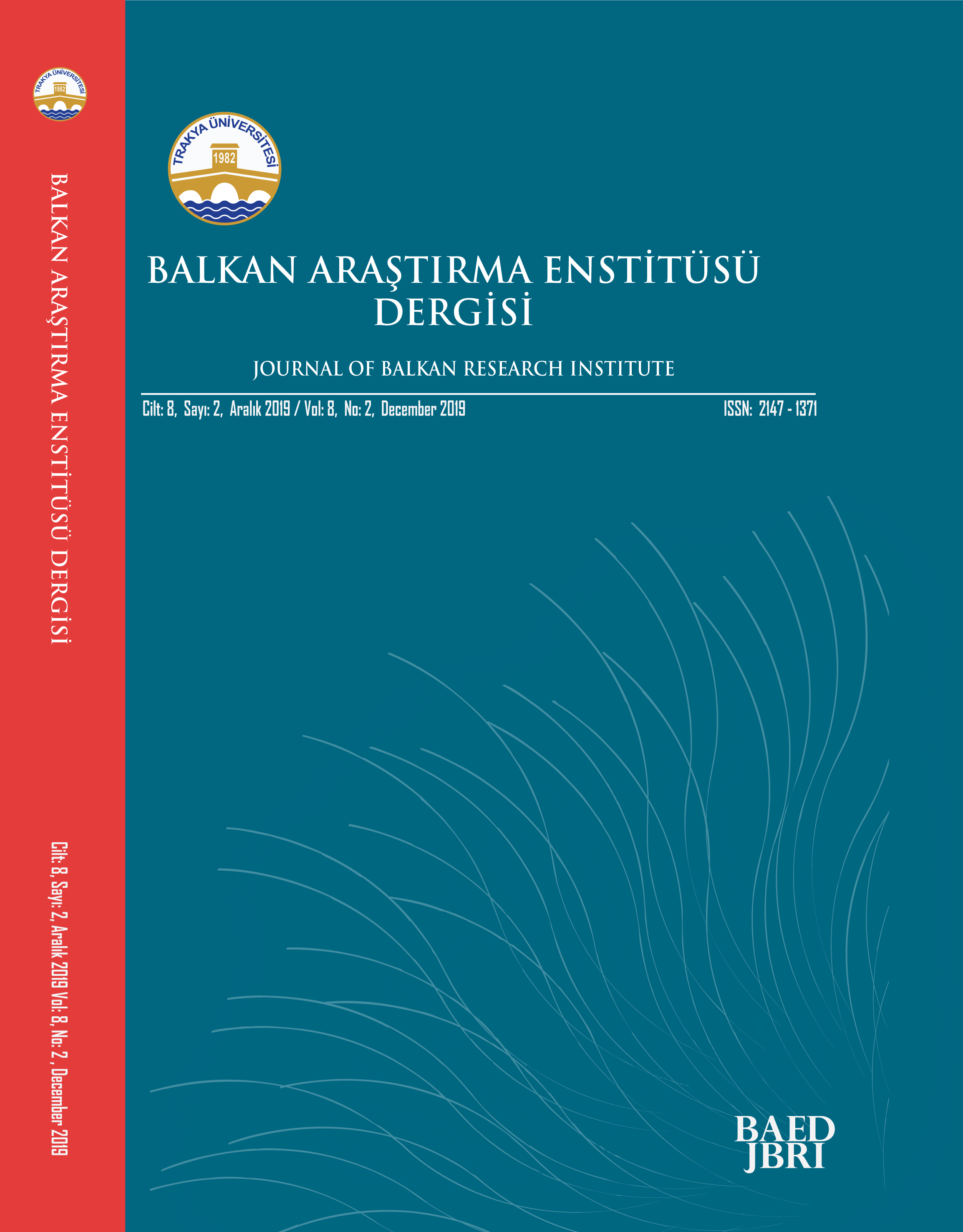GREEK NATIONALISM VERSUS EUROPEANIZATION: FROM ETHNIC TO CIVIC NATIONALISM?
GREEK NATIONALISM VERSUS EUROPEANIZATION: FROM ETHNIC TO CIVIC NATIONALISM?
Author(s): Gizem Alioğlu ÇakmakSubject(s): Nationalism Studies, Politics and Identity, Identity of Collectives
Published by: Trakya Üniversitesi Balkan Araştırma Enstitüsü
Keywords: Ethnic Nationalism; Civic Nationalism; Europeanization; Minority Rights; Article 19;
Summary/Abstract: Since its emergence in the 19th century, ethnic nationalism has had a significant impact on both state policies and the social sphere in Greece. The Greek Church and education system played a significant role in the consolidation of ethnic nationalist understanding in society and the state apparatus. The constitution also recognizes orthodoxy as an integral part of Greek identity, which makes non-Orthodox Greek citizens a secondary citizen. Also, Article 19 of the Greek citizenship law, which was in force until 1998, divided Greek citizens into two categories: “Greeks” and “non-Greeks”. Since the 1990s, this ethnic nationalist approach has been criticized by Greece’s Western European partners and European institutions. In the same period, Greece underwent a rapid Europeanization process and there were positive developments in minority rights such as the abolishment of Article 19. This study aims to analyze the impact of Europeanization in Greece on ethnic nationalism, which is decisive at the state and social levels. In doing so, it is to analyze the relationship between Greek nationalism and Europeanization within the framework of Kohn’s classification of ethnic-social (civic) nationalism. This research aims to answer the question of whether there is a shift from ethnic nationalism to a civic (inclusive) understanding of nationalism in Greece due to the Europeanization efforts since the second half of the 1990s.
Journal: Balkan Araştırma Enstitüsü Dergisi -Trakya Üniversitesi
- Issue Year: 8/2019
- Issue No: 2
- Page Range: 201-234
- Page Count: 34
- Language: English

